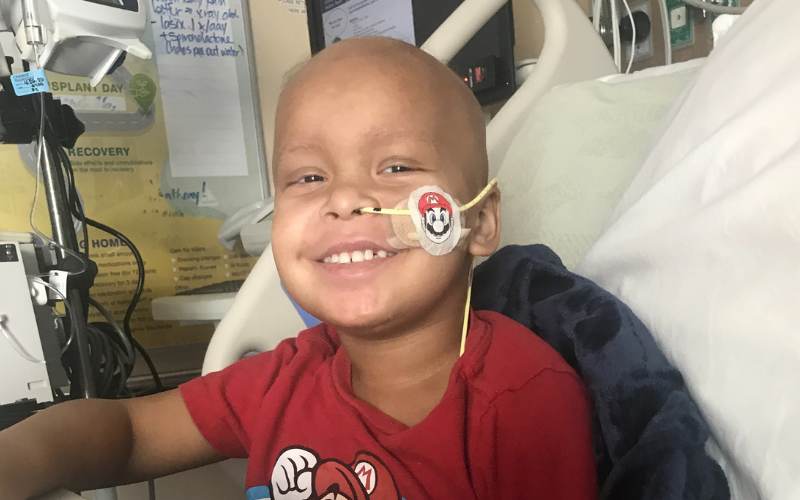
By: Anna C. Greene, PhD, ALSF Director of Science
Every day in the United States, 43 children are diagnosed with cancer, making it the leading cause of death by disease for children. Despite an urgent need for improved treatments, less than 4 percent of federal research funding is invested in childhood cancer research each year.
Alex’s Lemonade Stand Foundation (ALSF) aims to fill the funding gap through a comprehensive grant program that funds early stage basic research all the way to clinical trials that have the potential to bring new treatments to oncology clinics for widespread use. In addition, there have been some notable shifts in legislation that could help level the playing field for all kids with cancer, including the RACE Act, which went into effect in August 2020. This act requires pharmaceutical companies who are developing drugs for adults to evaluate those therapies in children as well if they share the same molecular target.
The importance of biomedical research is clear: one study estimated that from 1975-2010, pediatric cancer research led to treatment improvements that saved the lives of 45,000 children, illustrating the impact of research over time.
Medical advancements made possible through research helped improve overall five-year survival rates from 63 percent in the late 1970s to 85 percent today. ALSF has contributed immensely to the pediatric cancer research ecosystem, funding more than 1,000 research projects that have culminated in breakthroughs such as the approval of NTRK inhibitor larotrectinib which has given 6-year-old Lakelynn her childhood back.
However, there’s more to be done, and we will get there through new research discoveries.
But how does research lead to new therapies? Here’s a primer:
Step 1: Basic Research
Basic science research is a building block for future discoveries. The goal is to learn about biological fundamentals, and ALSF-funded research projects always focus on learning more about childhood cancer. Through basic research, scientists discover more about the mechanisms driving childhood cancers: what are the mutations that cause a particular cancer type, how do those mutations propel cancer growth, and how can they be targeted? Many of the ALSF grant categories fund basic research, including our Early Career Grants as well as our Innovation Grants.
Step 2: Preclinical Studies
Preclinical studies aim to translate a discovery from the lab to the clinic. Through these studies, scientists optimize a treatment, test it in the laboratory and in animal models, and evaluate dosing, side effects, and other considerations before moving the novel therapy into the clinic to test the drug in patients. The ALSF Reach Grant focuses on this type of study with the goal of getting an optimized drug into the clinic within several years.
Step 3: Clinical Trials
Before a new drug can be approved for use in patients, it must first be tested in clinical trials to ensure that the therapy is safe and effective. There are multiple phases of clinical trials: Phase I trials enroll a small number of patients to assess safety and dosing; Phase II trials enroll a larger number of patients to evaluate the effectiveness of the drug and to continue to monitor safety; and Phase III trials are the largest trials, enrolling many more patients to understand how well the new therapy works in a larger cohort of patients, and safety is continued to be monitored.
If the new therapy is deemed to be safe and effective, the FDA may then approve the drug for use in patients. ALSF funds Phase I/II studies through our Bio-Therapeutic Impact Award, as well as our Centers of Excellence and Phase I/II Infrastructure grants.
This process is repeated as new knowledge is gained. Discovering knowledge and translating it to new cures is a long road, and ALSF is committed to funding each step of the way. We fund research across the biomedical research spectrum, from basic science, to preclinical research, to clinical trials. Our ultimate goal is to bring more effective and safer therapies to children with cancer.
September is Childhood Cancer Awareness Month. ALSF’s philosophy is to fund the best childhood cancer research projects, vetting grant applications to make sure that our funding supports the most substantive and critical contributions to the field of childhood cancer research. Grantees are selected through a peer review process that follows best practices. Learn more about how grants are selected here.

